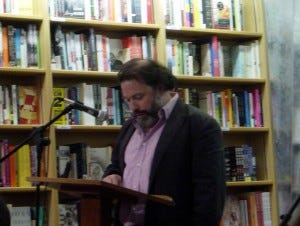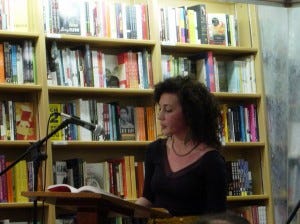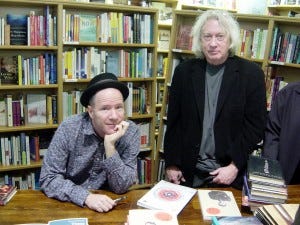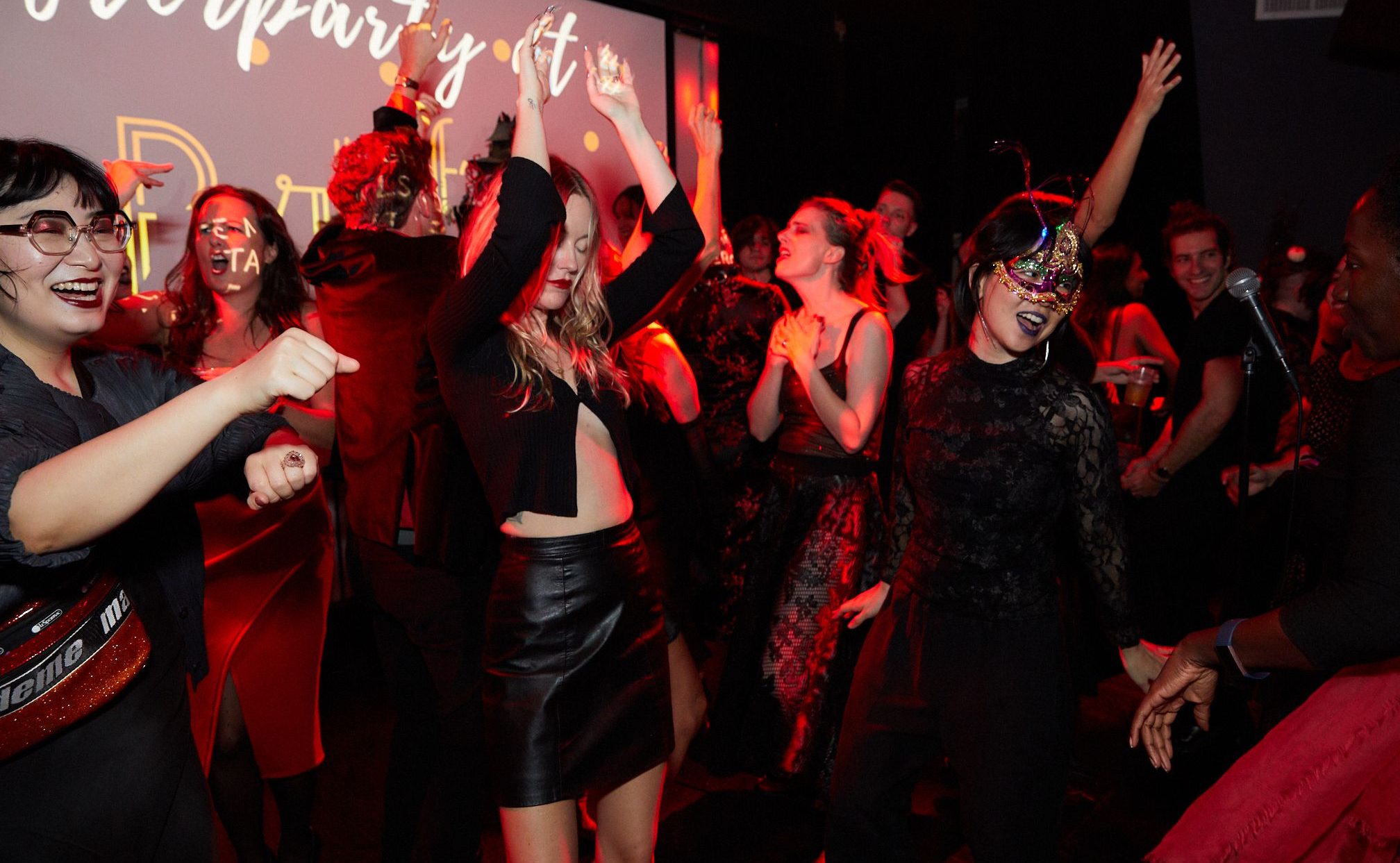news
You Want Some Big Black Clock? — Issue #15 Launches at McNally Jackson

1. Anthony Miller showing us why fictional history is more fun than the other kind. He does a surprisingly good impression of Chris Farley, Owen Wilson, and Yoda. 2. Kyra Simone describing a surreal trip on the Paris metro. I’d take shape-shifting thieves over the track work in New York.


Sunday’s Black Clock Issue 15 launch at McNally Jackson was packed with people and plastic fold-out chairs despite two lit-event anomalies: it was a Sunday afternoon and there was no booze. The second surprise was explained by the first, and the amount of people by the quality of the magazine, which has published scruffy old literary voices with fresh and squeaky new ones since its debut eight years ago. The theme of Issue 15 was alternative histories of cinema. I stood, packed between people, but happy, sober as Cathedral-era Raymond Carver.
1. See, I told you it was full. 2. The screenplay, featuring Steve Erickson, editor of Black Clock; Lynne Tillman, short story writer; Lynne’s student; and part of Geoffrey O’Brien’s head. (Rick Moody not pictured.)


Anthony Miller, the first reader, was the inspiration for this theme, according to Black Clock editor Steve Erickson. Miller read from “A History of the Cinema, 1920–2014,” which imagines a hilarious film tradition in which Alejandro Jodorowsky directs Dune, W.C. Fields plays the Wizard in The Wizard of Oz, and Ronald Reagan beats out Humphrey Bogart for the lead of The Maltese Falcon. When a reporter asks Clark Gable who he wants to play Scarlett O’Hara he responds, “Frankly, my dear I don’t give a fuck.” Miller’s piece ended with contemporary and future cinema, including a 2012 Wes Anderson adaptation of Pale Fire starring Bill Murray. The fantasy film I longed for most: Billy Wilder’s A Day at the U.N. (1961), starring the Marx Brothers.
Kyra Simone followed with her piece “Zazie dans le Passage Invisible,” a short story-as-transcription-of-surrealist-film that describes a girl’s trip through the Paris metro with her uncle. Sounds normal enough, though Uncle Gabriel has a knack for dour universals (“We go along like somnambulists in a zombie parade”), and when an alarm clock rings everyone on the train turns into birds. Simone has a canny eye for the uncanny, and her story is a wonderful translation of absurdist film conventions into letters.
1. Rick Moody posing, because C.N. Rennet wouldn’t, and Steve Erickson, signing autographs. 2. Kyra Simone, writer and editor of Her Royal Majesty, and her friend Patti, who insisted that I call her Kyra’s “companion.” And you’re right, that is a picture of Bogie holding a samurai sword on the cover of Black Clock.


Next, Geoffrey O’Brien read a poetry cycle titled “Program Notes for a Festival of Lost Films,” a complement to Miller’s history that offers snapshots of films that never were. In “La Mer Ancienne,” a “legion of the drowned” rise from the ocean: “Like flowers they pop up/ or like hidden armies.” The mini-films are haunted and desolate. In another, a camera captures a murder on a film set and the murderer goes mad when forced to watch the projection. It’s the stuff Rod Serling’s nightmares are made of.
Next, Rick Moody read “Fremont, Ryder J.,” which he presented as a rejected entry to The Evergreen Book of American Film Composers, written by one C.M. Rennet. This was a deadpan, Borgesian faux-essay, but Moody kept up his act, explaining in his Jack Nicholson drawl, “I’m only here because my friend is an agoraphobe.” Fremont, according to Rennet, held a place alongside Henry Mancini and Bernard Herrman in his heyday, despite his reliance on sub-Saharan instruments and unceasing experimentalism.
Lynne Tillman finished the evening with an excerpt of her script adaptation of Jane Bowles’s Two Series Ladies, an underrated classic of American literature. Tillman’s script presents rich women on a trip to Panama and uses jump cuts to allow their stories to diverge as they move among drunken tourists and prostitutes. O’Brien, Moody, Erickson, and one of Tillman’s students joined her up front to cover all the dialogue in what was the first bit of theater I’ve seen at McNally Jackson.
As Rick Moody suggested, speaking as himself this time: buy some books, keep McNally Jackson in business. I’d say get a copy of Black Clock for your film-loving sweetie, or any day-dreaming cineaste in your life.

by Steve Erickson

***
— Sam Gold is Groucho Marx every Halloween and Woody Allen every other day of the year. He’s only half Jewish.









